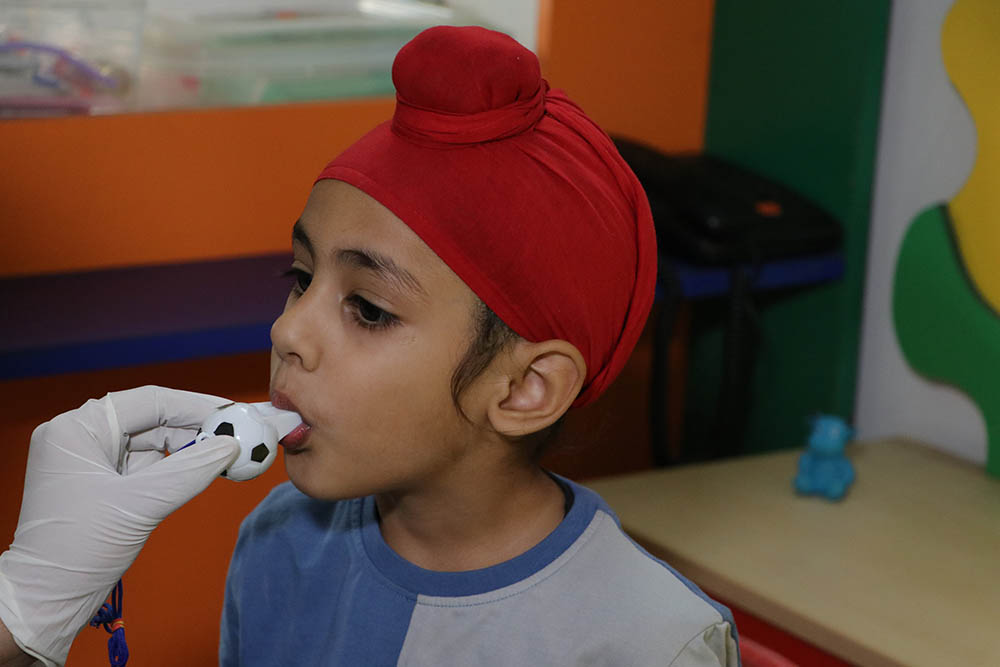Speech therapy is a specialized form of therapy that aims to improve verbal and non-verbal communication effectively in special needs children.It involves a variety of approaches and exercises aimed at improving the capacity to babble, imitate, and speak one-word, two-word and short sentences. It also addresses the concerns related to articulation errors, echolalia, and age-appropriate conversational skills.A speech therapistcreates, monitors, and modifies the treatment plan of the child as per his/her unique needs and goals.
Here are some speech therapy exercises that we primarily focus on:
Oral motor exercises
Oral motor exercises facilitate the expansion and contraction of jaw muscles which strengthen the ability to produce clear speech sounds. This may involve activities such as performing various mouth movements, facial/oral massage, creating bubbles, and blowing and sucking with a straw.
Picture exchange communication system (PECS)
PECS uses pictures or symbols to assist children in communicating. PECS is used for non-verbal communication. Primarily, we use it for very specific and necessary daily living functions, such as toilet and water training. This technique helps the children learn and communicate their wants and desires more independently.
Vocalisation exercises
Vocalisation exercises aid in the development of vocal abilities in children. This may involve exercises such as babbling, humming, or producing various vocal noises (anima, vowel sounds).
Conversational practice
It is a way to enhance communication skills which involves the teacher to communicate with a child using tools such as various types of flashcards, pictures, and social story cards. It also facilitates giving the child the concept of turn-taking, maintaining eye contact and promoting social skills.
Storytelling
It aids children with special needs in developing their language and comprehension abilities. The children may listen to or read stories, and then retell them in his or her own language.



